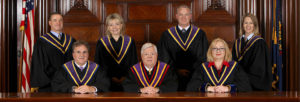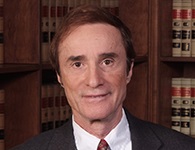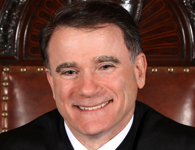
Pa. Supreme Court to hear appeal of overturned $21M verdict against Nationwide
By onBusiness Practices | Insurance | Legal | Repair Operations
The Pennsylvania Supreme Court on Friday agreed it would reconsider three issues raised by plaintiffs who’d successfully sued Nationwide for bad faith in a Jeep collision repair only to have the $21 million verdict overturned by a Superior Court last year.
The Superior Court majority held in a 2-1 decision that Common Pleas Judge Jeffrey Sprecher overreached in finding Nationwide’s behavior in Berg v. Nationwide constituted bad faith.
“Judge Sprecher heard the testimony of only four damage witnesses, no additional evidence of bad faith by Plaintiffs, and otherwise relied on transcripts from the prior proceedings,” noted the Superior Court opinion by Judge Victor Stabile — one of the two judges who heard but deadlocked on the appeal in 2017. (Emphasis Stabile’s.) Judge Paula Ott, who did not hear the case then, joined him in the 2018 opinion.
“We vacate the judgment because the record does not support many of the trial court’s critical findings of fact,” Stabile wrote. “We are cognizant of the standard governing our review, and we have not reached our decision lightly. We understand that the trial court, as fact finder, was free to choose which evidence to believe and disbelieve. Likewise, we understand that our standard of review requires us to defer to findings supported in the record and draw reasonable inferences in favor of Plaintiffs. Nonetheless, our case law provides that bad faith claims are fact specific, must be proven by clear and convincing evidence, and that the fact finder must consider ‘all of the evidence available’. After an exhaustive review of the very large record in this case, we believe we have no choice but to vacate the judgment. We have quoted extensively from the record in an effort to provide full context for our decision. We observe that the trial court’s opinions, while very lengthy, cite infrequently to the record.”

The dissent by President Judge Emeritus Correale Stevens thought the majority was overstepping its bounds as an appellate court by cherry-picking its own facts to interpret.
“The majority vacates the judgment ‘because the record does not support many of the trial court’s critical findings of fact.'” Stevens wrote. (Emphasis his.) ” … In doing so, however, the Majority tacitly admits that other critical findings of the trial court are supported by clear and convincing evidence.
“This Court cannot supplant the trial court’s findings with its own. Thus, the trial court did not abuse its discretion, and the award of damages does not shock this Court’s sense of justice. Therefore, I respectfully dissent and would affirm the trial court.”
Stabile’s opinion dumped the $21 million verdict as a byproduct of finding that the behavior didn’t constitute bad faith and didn’t analyze if the amount would have been excessive were the case indeed bad faith. However, he does take a shot at it about it in a footnote:
“Though not relevant to our decision to vacate the judgment, we find it telling that a case in which a jury found in favor of Appellant on all but one cause of action and awarded Plaintiffs only $295 has morphed into a judgment of more than $20 million on Plaintiffs’ bad faith claim,” Stabile wrote. The cause of action referenced was an alleged violation of the state’s unfair trade practices law.
The case
But despite Stabile’s portrayal of it as penny-ante, the case is still a pretty interesting read, and we’d encourage repairers to check out both Sprecher’s account of it in his 2014 judgment and the depictions in the new June 2018 Superior Court majority opinion and dissent.
Nationwide had suggested Daniel and Sheryl Berg have their 3-month-old, leased 1996 Jeep Grand Cherokee repaired at one of its direct repair program shops following a 1996 crash, according to a 2017 summary of the case by collision industry attorney Erica Eversman and another summary by plaintiffs’ attorney Mayerson Law.
The Blue Ribbon repair facility said the Grand Cherokee was a total loss, given the frame damage. Nationwide disagreed, and a claims log item notes: “REPAIRS ARE APPROXIMATELY 50% of ACV NATIONWIDE WILL NEVER RECOVER THE DIFFERENCE IN SALVAGE VALUE.”
Four months later, the Jeep Grand Cherokee work was finished. It was unsafe but Nationwide either didn’t inspect it as it should have or did inspect it and didn’t tell the Bergs, Sprecher concluded in 2014.
Sprecher’s 2015 opinion decries Nationwide’s attempt to use a “scorched earth” litigation policy costing $3 million in its own attorneys fees and notes “several legal duties and fiduciary obligations that it recklessly disregarded.”
Among the bad-faith behavior highlighted in that document: Nationwide’s refusal to sell the Jeep to the Bergs’ attorney followed by its destruction of what Sprecher called a piece of “vital evidence.” Sprecher also declared it bad faith that Nationwide waited until the Bergs had finished all lease payments on the Grand Cherokee to total it.
He awarded $18 million plus another $3 million based on what Nationwide paid in its own attorneys.
2018 Superior Court rulings
Both the Pennsylvania Superior Court majority and minority opinions chastized Sprecher for his lengthy ranting about the insurance industry, though Stabile didn’t examine whether it actually constituted bias since he and Ott had already concluded the facts themselves didn’t support bad faith.
Stevens expressed “displeasure” at Sprecher’s “tangential discourse” but declared the trial court’s reasoning on the actual case still held up and the majority was wrong to overturn him.
The Pennsylvania Supreme Court on Friday said it would concentrate on if the majority was indeed out of line.
The issues, as stated by petitioner, are:
a. [D]oes an appellate court abuse its discretion by reweighing and disregarding clear and convincing evidence introduced in the trial court upon which the trial court relied to enter a finding of insurance bad faith?
b. [D]id the Superior Court abuse its discretion by reweighing and disregarding clear and competent evidence upon which the trial court relied to support its finding of insurance bad faith [pursuant to the standard set forth in Rancosky v. Washington Nat’l Ins Co., 170 A.3d 364 (Pa. 2017)]? (Minor formatting edits.)

Stabile’s majority opinion said both Nationwide and the Bergs agreed that the Nationwide direct repair program shop Lindgren Chrysler-Plymouth did “poor repair work,” but dispute other elements of the case that affected the bad faith decision.
“In summary, the parties dispute (1) whether Appellant (Nationwide) overrode Lindgren’s initial total loss appraisal in order to save money; (2) whether Appellant forced Lindgren to repair the Jeep knowing the Jeep could not be restored to its pre-accident condition; (3) whether Appellant allowed Lindgren to return the Jeep to Plaintiffs knowing the Jeep was not crashworthy and therefore not safe to drive; and (4) whether Appellant’s subsequent conduct—including its conduct of this litigation—was an elaborate cover-up of its prior bad faith conduct,” Stabile wrote.
The majority pointed to evidence that the dealership thought the Jeep was a total loss but wasn’t sure, and Nationwide’s determination that repairers were more cost-effective than totaling a car by itself didn’t constitute bad faith. However, the Superior Court did note that structural total losses also exist, and Stevens quoted evidence that the Bergs felt the twisted unibody made it a total loss and a representative of the dealer had told Nationwide he felt it was a structural total loss.
“The aforementioned evidence when viewed in a light most favorable to the Bergs indicates Joffred’s initial appraisal was that the car was a total loss. The finder of fact, not this Court, is the proper arbiter of truth in this regard and is free to make credibility determinations,” Stevens wrote. Thus, I cannot agree with the Majority’s determination that there was ‘no support’ in the record for a finding that Witmer, on behalf of Nationwide, in fact, vetoed Joffred’s total loss appraisal, which is belied by the Majority’s own citation to Witmer’s claim log entry of September 24, 1996, and admission that ‘the record supports a finding that Appellant [Nationwide] deemed repairs more cost effective than a total loss.'”
Stabile and Ott also said that evidence existed that the vehicle was repairable.
“Plaintiffs bore the burden of proving Appellant’s bad faith by clear and convincing evidence,” the majority opinion wrote. “They produced no evidence that the Jeep was beyond repair. The record confirms only that Lindgren and/or K.C. Auto Body failed to repair the Jeep properly.”
Stevens pointed out this evidence went two ways.
“Certainly, evidence that two auto repair shops were unable to repair the vehicle satisfactorily supports the finding by the trial court the Jeep was ‘beyond repair’ and shows bad faith on the part of Nationwide,” Stevens wrote in his dissent.
Stabile and Ott did agree with Sprecher that the vehicle was unsafe.
“The record supports the trial court’s finding that the vehicle was not crashworthy,” they wrote. “Plaintiffs’ expert witness testified that safety features including the airbags and front crumple zones would not respond as designed in the event of a subsequent crash.”
But, according to the majority, there was “no evidence that the extent of the faulty repairs would have been evident during a visual inspection when the repairs were nearly complete, much less that Appellant knew or should have known about the faulty repairs.” (Emphasis Stabile’s.)
“Although the Majority interprets the evidence to the contrary, the fact that the repair job was to take about twenty-five and one-half days to complete, but instead required four months, further supports the trial court’s conclusion that the vehicle was not capable of a safe repair,” Stevens countered.
“Thus, there is sufficient evidence in the record to support the trial court’s determination that Nationwide was motivated by monetary gain not to declare the Jeep a total loss, and, therefore, acted with reckless disregard in not thoroughly inspecting the ongoing repairs.”
He also attacked the Majority’s logic that Nationwide’s buying the Jeep afterwards protected an “’unsuspecting third party from purchasing and driving the Jeep.’”
“There would be no need to ‘act prudently’ if Nationwide believed the Jeep to be safe,” he wrote.
In terms of Nationwide’s behavior after the Bergs complained about the repair, the Superior Court pointed out that Nationwide’s failure to tell the Bergs what its own expert had found was irrelevant since the Bergs’ own expert had already deemed the vehicle unsafe. As for Nationwide’s destruction of the Jeep, Stabile pointed to evidence that “Plaintiffs’ counsel did not make clear the Plaintiffs’ intent to purchase the Jeep” at first and ultimately a judge approved its destruction nearly a decade later.
Stevens, meanwhile also pointed out “the Majority notes Nationwide inexplicably and repeatedly refused to comply with discovery requests to produce an unredacted claims log; yet, the Majority finds no proof of bad faith in its doing so because ‘in [its] view’ the claims log contradicts the trial court’s finding that Nationwide ‘vetoed’ Joffred’s total loss appraisal.
“Again, respectfully, this Court cannot supplant the trial court’s findings which have support in the record with its own interpretation of the evidence.”
Third issue for the Supreme Court
The Supreme Court will also examine another interesting factor with ramifications for consumers, collision repairers and insurers.
“Does an insurer that elects under an insurance contract to repair collision damage to a motor vehicle, rather than pay the insured the fair value of the loss directly, have a duty to return the motor vehicle to its insured in a safe and serviceable condition pursuant to national insurance standards, and pursuant to its duty of good faith and fair dealing?”
According to the trial court’s finding of facts, plaintiffs Daniel and Sheryl Berg (the latter died during the course of the 20-year litigation) had a Nationwide auto policy that stated:
We may:
1. Pay you directly for a loss.
2. Repair or replace your auto or its damaged parts
3. Return stolen property at our expense and pay for any damage. (Minor formatting edits.)
We’ll dive deeper into that issue with a separate article later today. Stay tuned.
Images:
The Pennsylvania Supreme Court is seen in 2016. (Provided by Unified Judicial System of Pennsylvania)
Pennsylvania Superior Court President Judge Emeritus Correale Stevens. (Provided by Unified Judicial System of Pennsylvania)
Pennsylvania Superior Court President Judge Emeritus Correale Stevens. (Provided by Unified Judicial System of Pennsylvania)
